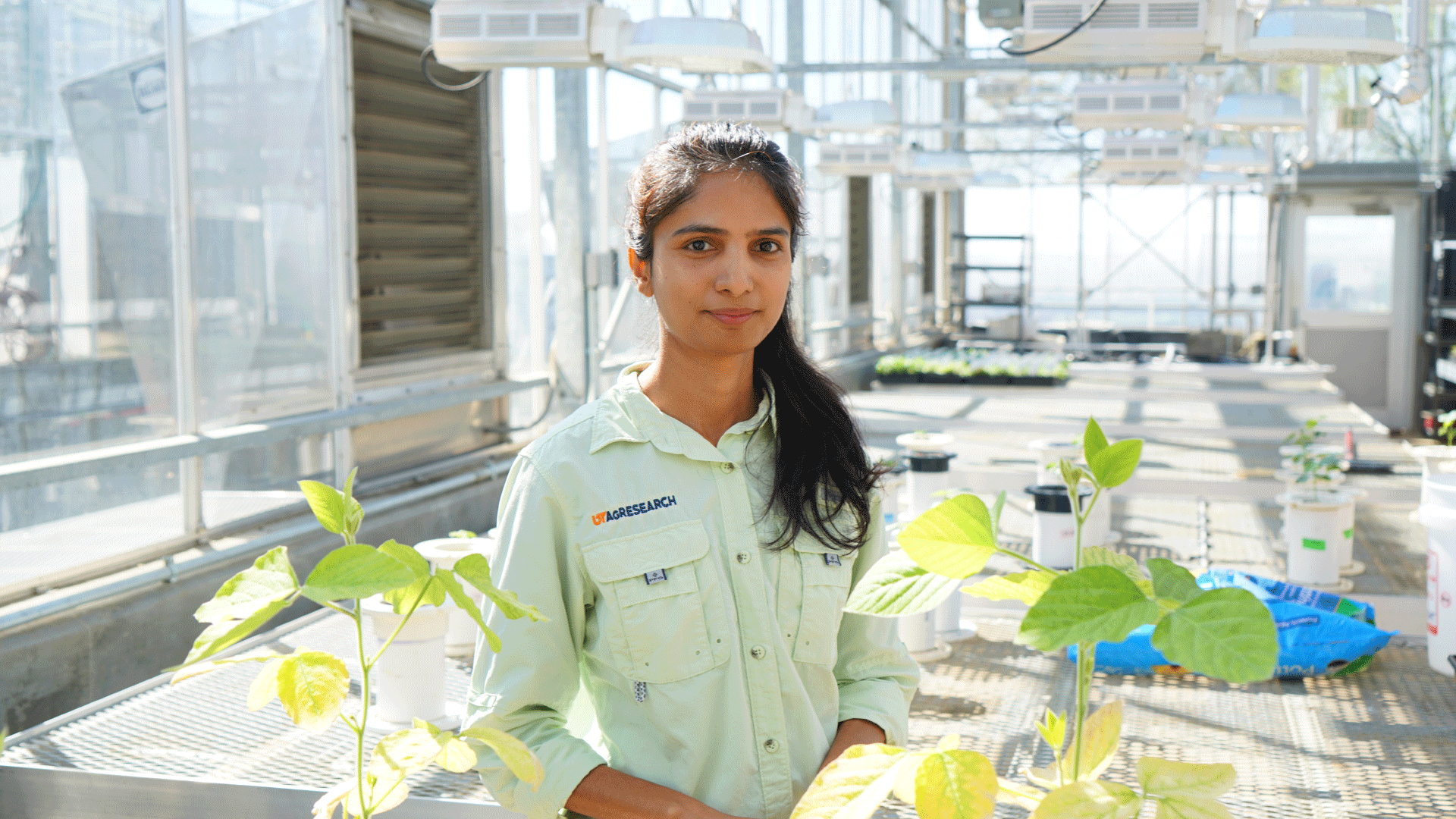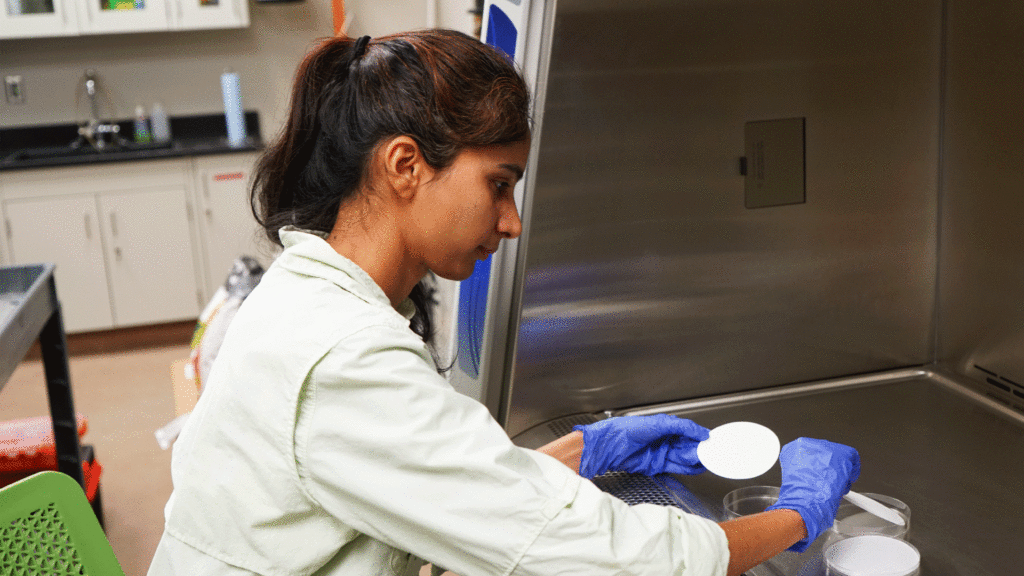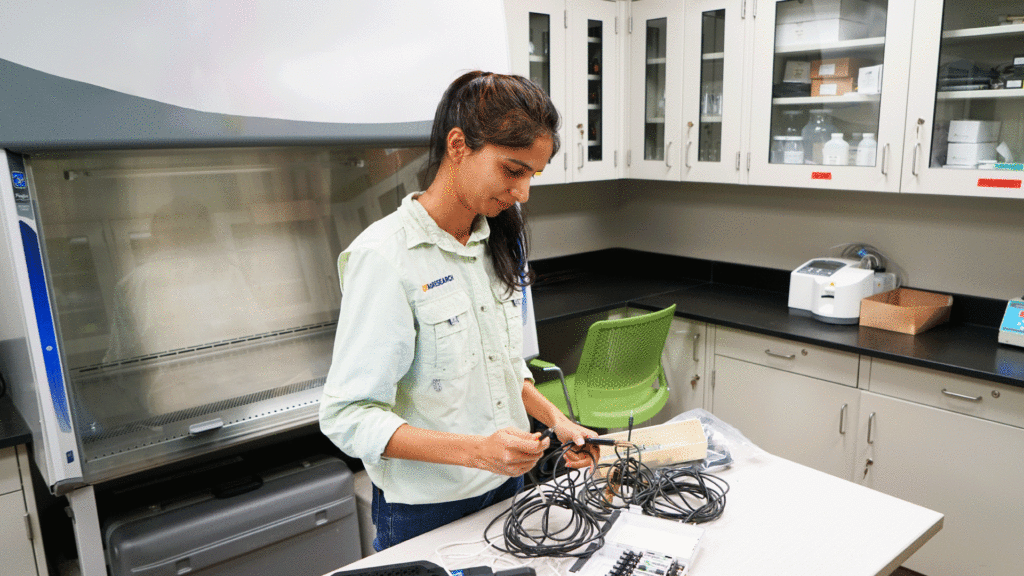
Plant physiology PhD student develops Real. Life. Solutions. to address food security concerns in response to climate change
Where are you from, and what led you to UTIA?
I am from Nepal. The University of Tennessee Institute of Agriculture’s acclaimed program in plant sciences captured my interest. As I am passionate about row crops, agronomic management practices, and precision agriculture, I was impressed by the innovative research on row crops at the West Tennessee AgResearch and Education Center.
After searching more about the university, I found that University of Tennessee Institute of Agriculture has established a distinguished reputation for academic excellence and research innovation. I was particularly drawn by the caliber of faculty members and their expertise in various research in row crops and precision agriculture. The opportunity to learn from such esteemed professionals and collaborate on cutting-edge research projects led me to UTIA.
Can you tell us about your research and why it is important?
Climate change is causing drought and ground water depletion is making the condition worse due to low water availability for irrigation. And these problems are reducing US corn production. In these circumstances it is important to improve water use efficiency and utilize the limited water wisely. So, I am working on finding the best irrigation scheduling practices in corn-based on some of the digital options such as variable rate irrigation and soil water sensors.
Apart from irrigation, it’s very important to find other ways to improve water conservation, water use efficiency and crop yield. One of the ways can be plant health products. Plant health products such as fungicide might improve water use efficiency and crop yield under drought conditions along with disease protection.

So, to give more options for improving crop performance under drought conditions to the growers, I evaluated the effect of a newly launched fungicide named “Xyway”. I also evaluated the effect of Xyway under different irrigation scenarios (high irrigation, deficit irrigation and rainfed/no irrigation) to see if we can combine the irrigation scheduling and fungicide and hence maximize the benefit.
And from my study I found that Xyway fungicide can improve water saving potential, water use efficiency and crop yield under all irrigation scenarios, especially under deficit and rainfed condition. Also, I found that application of Xyway fungicide can be profitable to corn growers even if they apply deficit irrigation or without irrigation.
Why plant physiology?
I chose to pursue my PhD in plant physiology because I’m fascinated by how plants grow, adapt to their environment, and respond to stress. Understanding these processes is crucial for improving crop productivity and sustainability. I’m excited about the opportunity to conduct research that contributes to addressing global challenges like climate change and food security. Additionally, I’m drawn to the interdisciplinary nature of plant physiology, which integrates biology, biochemistry, genetics, and environmental science. Overall, pursuing a PhD in plant physiology aligns perfectly with my passion for agriculture and my commitment to find solutions to the increasing problem of drought and global warming.
What is the most fulfilling aspect of the work you do?
Researching solutions for farmers’ challenges brings me great happiness as I directly contribute to their well-being. Developing practical ways of irrigation and drought management can solve farmers’ problems. Witnessing the positive impact of my work strengthens my connection with farming communities. Farmers’ gratitude for implemented solutions motivates me to continue striving for innovation. Overall, helping farmers through research fills me with joy and purpose.
What does a typical day as a PhD candidate look like for you?
A typical day as a PhD candidate involves a balance of research activities, academic commitments, and personal responsibilities. I begin by reviewing literature, planning experiments, writing papers or data analysis. Throughout the day, I conduct experiments, analyze results, and attend classes. I also spend time with my advisor, discussing results and research goals. Time management is crucial, allowing for breaks and self-care activities.

What has been your proudest or most memorable moment during your time at UTIA?
Being awarded with Tom & Emily Austin Outstanding PhD Graduate Student Fellowships and Fellowship for Graduate Excellence (2022-2024) provided by University of Tennessee Herbert College of Agriculture are my proudest achievement. I felt very proud when I presented my research findings with more than 150 growers in collaboration with one of the biggest chemical companies, FMC.
How has your experience in the Herbert College of Agriculture prepared you to enter the field?
My experience at the Herbert College of Agriculture has equipped me with practical skills and knowledge essential for success in the field. Through hands-on research experience, collaboration, and supportive mentorship, I’ve gained confidence and readiness to enter the agricultural industry. The emphasis on digital technology and interactions with farmers has provided valuable insights and prepared me for the challenges and opportunities ahead. Overall, my time at Herbert has contributed to shaping my academic and professional journey in agriculture.
Do you have any advice for prospective students?
Develop time management skills, seek professional development opportunities, build strong a network, stay flexible and persistent, and prioritize self-care.
What do you like to do outside of work and/or what is a fun fact about yourself that your fellow graduate students and professors may not know?
Apart from my academic interests, I like outdoor activities: hiking, camping, picnicking. I love gardening and taking care of my plants. And I enjoy cooking!
